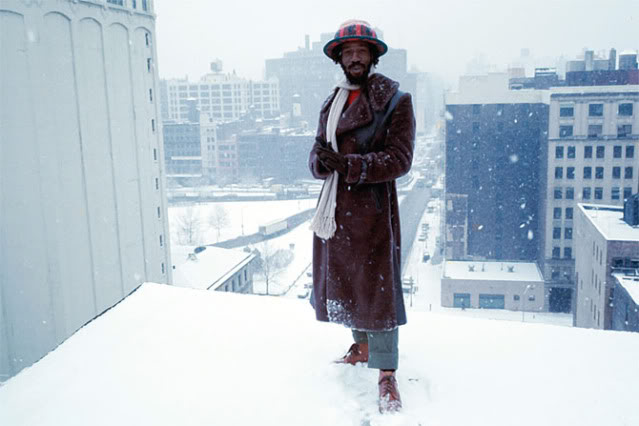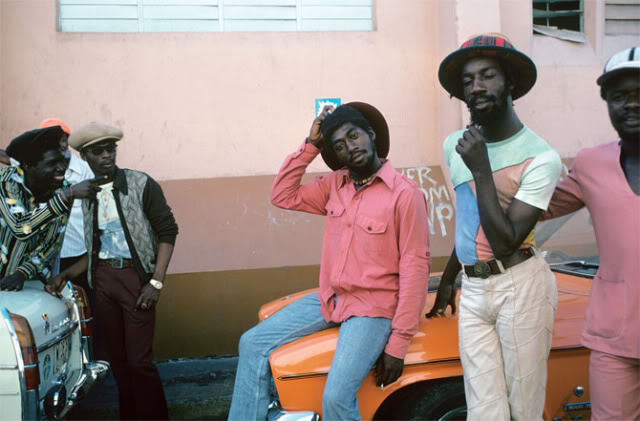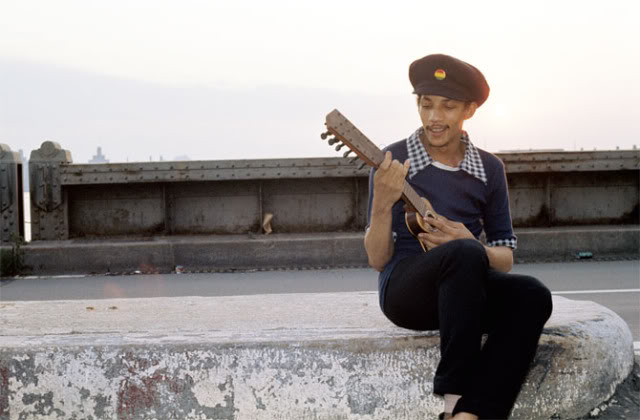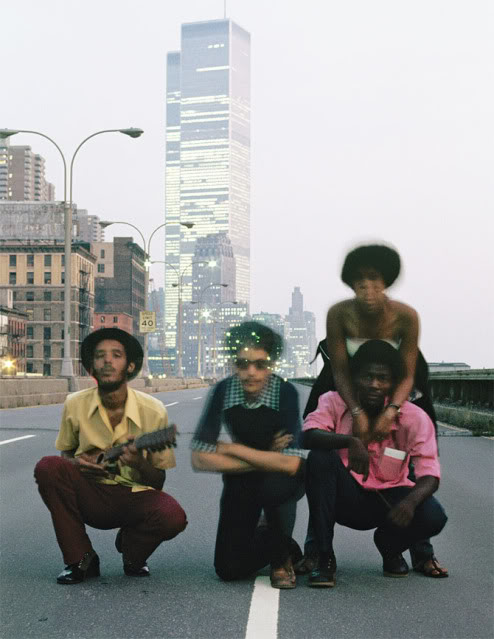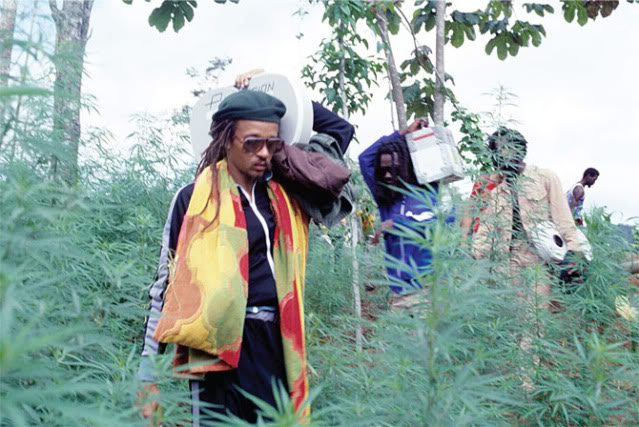Were they teasing you?
No, they weren’t. Stuff like that happened all the time.
This is a completely different picture of Jamaica than the one you present in Rockers.
There was this idea that everything was going swell, because of Bob Marley’s success. Even for reggae, the reality was different—much harsher. And harsher still for a white guy in the middle of it. I lived there for a couple years before we started shooting. Those Jamaicans living in the ghettoes of Kingston were innocent people in their everyday lives and this is exactly what I wanted to capture in the film—a more realistic picture of who they were, or who they really wanted to be. Something like Robin Hood. Jamaica was a fantasy world where reality as we knew it could not exist.
How do you mean?
They lived in a setting that cut them off from the real world. You had nowhere to go; there was seldom someone you could call “Dad.” There were simply men who had relationships with women. There was no real family structure. In most cases, children were not acknowledged, and though you would grow up with a mother, there was nothing there to support you in any way, because it was really tough. It was practically impossible for anything to come out of that situation apart from a tolerance for violence, a gang mentality among young kids as everyone else struggled to eke out a living. But it’s important to realize that a great many people managed to live under these conditions peacefully and productively. This was something.
How did Jamaica feel to someone from Andros and New York?
Really exotic. An unusual experience.
Even more unusual than New York? You’re from this tiny village in Greece.
Look, I left Andros for Athens at age 17 from this very house, from this very table we are sitting around right now. I was lucky enough to have a very open-minded father who advised me—without pressuring me—to go to the Rhode Island School of Design, one of the world’s top design schools.
When was this?
This was between 1964 and 1968—the sex, drugs, and rock ’n’ roll era. After school I returned to Greece during the junta, to serve in the military. In the meantime I married Eugenie—this year we celebrate 39 years of marriage. After my discharge from the army we went to Minnesota and after that we packed up and went to New York. We became bohemians and lived in an abandoned building in Tribeca.
How did you earn a living?
I worked various freelance jobs. Eugenie worked in the textile industry as a designer. Basically, I kept myself busy repairing the building we lived in and would work odd jobs. I worked as a photographer, until New York magazine commissioned me to do a shoot of a young Jamaican at the Tropical Club, a seedy club in Brooklyn. I went there and suddenly Augustus Pablo appeared playing a melodica. I was dumbfounded. He was also the first one I met.

